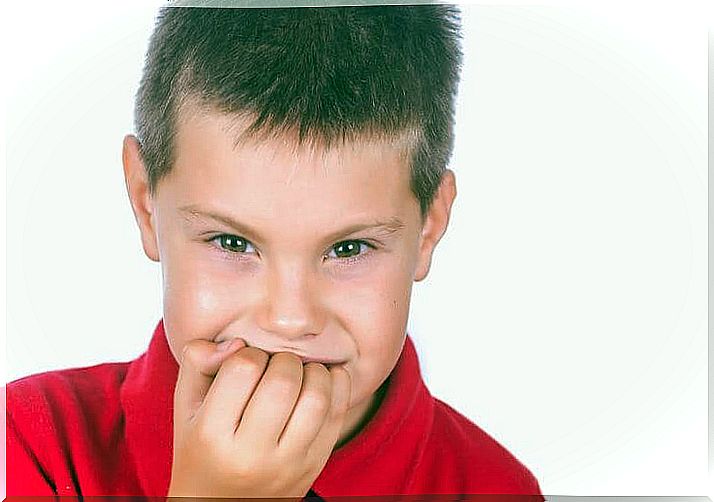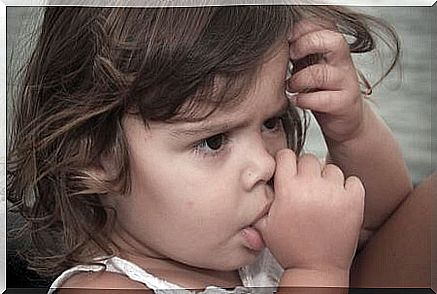How Do I Stop Him From Biting His Nails?

Ensuring that the child does not bite their nails is not an easy task, as it is an involuntary habit that can accompany them into adulthood. It is a fairly common habit, but to act you must be aware of what is happening and let the child know what its damages may be.
This mania is observed in a psychological way by specialists, who call it onychophagia; It is a habit that is among nervous disorders, also associated with others such as thumb sucking. Although the causes can be varied, it is likely that it is anxiety, perhaps due to imitation or association with the performance of a certain activity.
There is a high number of little ones who bite their nails or fall into one of these similar habits, but it is common for them to overcome it in adolescence. However, we can speak of at least 10% of children who maintain this behavior until adulthood.
Possible causes
Determining the cause of this problem is the main way to combat it, it is known that it is a nervous situation, so it is important to observe the child carefully in cases of stress or performing unusual tasks. However, it is advisable to be vigilant also in cases that require the child’s concentration, such as watching television or doing homework.
Among the main causes of onychophagia we have:
- Anxiety. This can be derived from different situations, you may be distressed by some family problem or change in your life. It is also common for them to get stressed by an exam or school activity, it is something common in shy children and attacked by shame.
- Confusion. In certain cases, children may feel somewhat disoriented, a situation that prevents them from functioning normally; This leads them to seek to concentrate more than necessary, which finally makes them fall into their habit. Being confused is a common cause that leads to nail biting even for those who are not used to it.
- Unsafety. It is a behavior associated with shyness and low self-esteem, which is something that is part of the child’s daily life, which is why this habit is more frequent.
- Imitation. Although in the smallest of cases, some children come to bite their nails by imitating this practice of an adult.
Help so you don’t bite your nails

The best way to help our little ones overcome this bad habit is to focus on it. Be aware of the problem and encourage him to be too. From now on a lot of patience and a positive attitude to achieve it.
To begin we can follow the following recommendations.
- Avoid biting your nails yourself and find out what is causing your child to do it.
- Try not to reproach him for this behavior in front of strangers ; To channel him, try to create a secret code between yourselves to let him know that he fell into the same thing again.
- If you make a habit of telling him not to do it, you may be getting his mania to take hold even more. It is preferable to advise them in a more objective way, telling them the possible problems of this habit.

- Once you have discovered the cause of this habit, make sure that at that moment, his hands are busy so that he does not bite his nails.
- Promote physical exercise so that the child drains energy and overcome his nervousness. It is also advisable to constantly reinforce your self-esteem.
- Reward your effort to collaborate with the eradication of this mania, this will allow you to concentrate on achieving it. Praise him for the time he passes without putting his fingers in his mouth, and occasionally give him something to stimulate him.
- Avoid ridiculing or embarrassing him in public and never resort to violence or the use of strange elements, such as placing bad-tasting products on his nails.
- Try to help him understand his feelings, tell him that you have noticed that he is nervous or worried, this will allow him to identify his emotions and the way of expressing it may change.
- Make sure that their diet, rest and coexistence are according to their age, this to avoid possible emotional disorders that make them more prone to nervousness.









